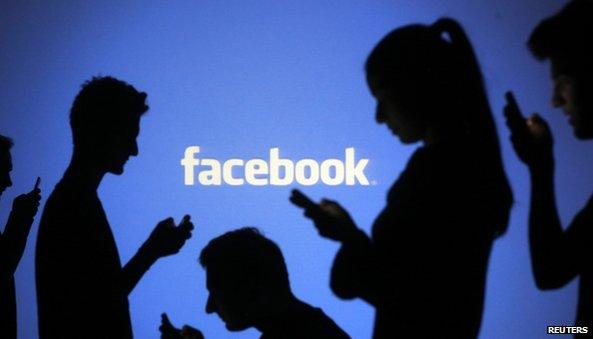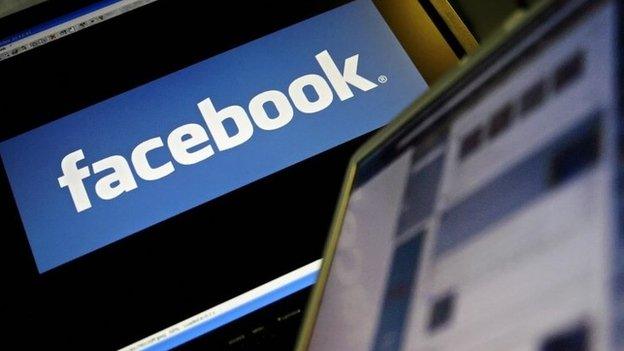Facebook reports strong profits, adding millions of users
- Published

Facebook reported fourth-quarter profits of $701m (£462m), a 34% increase on the same period a year ago.
Advertising revenue grew by 53% to $3.59bn, with nearly 70% of that coming from mobile ad sales.
The social networking giant said it now has 1.39 billion active users each month, a 13% increase from a year ago.
"We got a lot done in 2014," said Mark Zuckerberg in a statement, external accompanying earnings.
Total profits for the year were $2.9bn, almost double the total for 2013.
However, the amount of profit the company made on each dollar of revenue decreased from 44% to 29% from a year earlier, as the social network invested more heavily in marketing and research and development (R&D).
The amount Facebook is spending on R&D nearly tripled to $1.1bn this quarter, as the company spent considerable sums on developing its various acquisitions such as Instagram, WhatsApp and virtual-reality headset maker Oculus Rift, as well as its own in-house messaging products and video services.
Facebook also echoed a common complaint amongst US firms this earnings season, saying its revenue would have increased by 53% instead of 49% were it not for unfavourable foreign exchange rates.

Analysis: BBC technology reporter Dave Lee
When Facebook first floated on the stock market, founder Mark Zuckerberg said his firm needed to figure out how to make money from mobile users - and quick.
Well, job done. Facebook's mobile ads lack subtlety, for sure, but the tactic is working, and it hasn't put users off. Mobile advertising threatened to be Facebook's Achilles' heel, but now it can be regarded as its strongest asset.
When Wall Street looks at social network earnings reports, a massive emphasis is put on growth. If not enough new people are signing up, the share price suffers - just ask Twitter.
With big acquisitions - Whatsapp and Instagram - and its "next billion" targets for the developing world, Facebook is continuing to grow at a rate that satisfies shareholders.
So what's next? Last week I visited Facebook's new London HQ. It was lunchtime, and I saw several employees spending their break immersed in Oculus Rift, the virtual reality headset bought by Facebook last year. It is expected to launch this year. Mark Zuckerberg has already changed the way the world interacts once. Can he do it again?
Follow Dave Lee on Twitter @DaveLeeBBC

- Published27 January 2015
